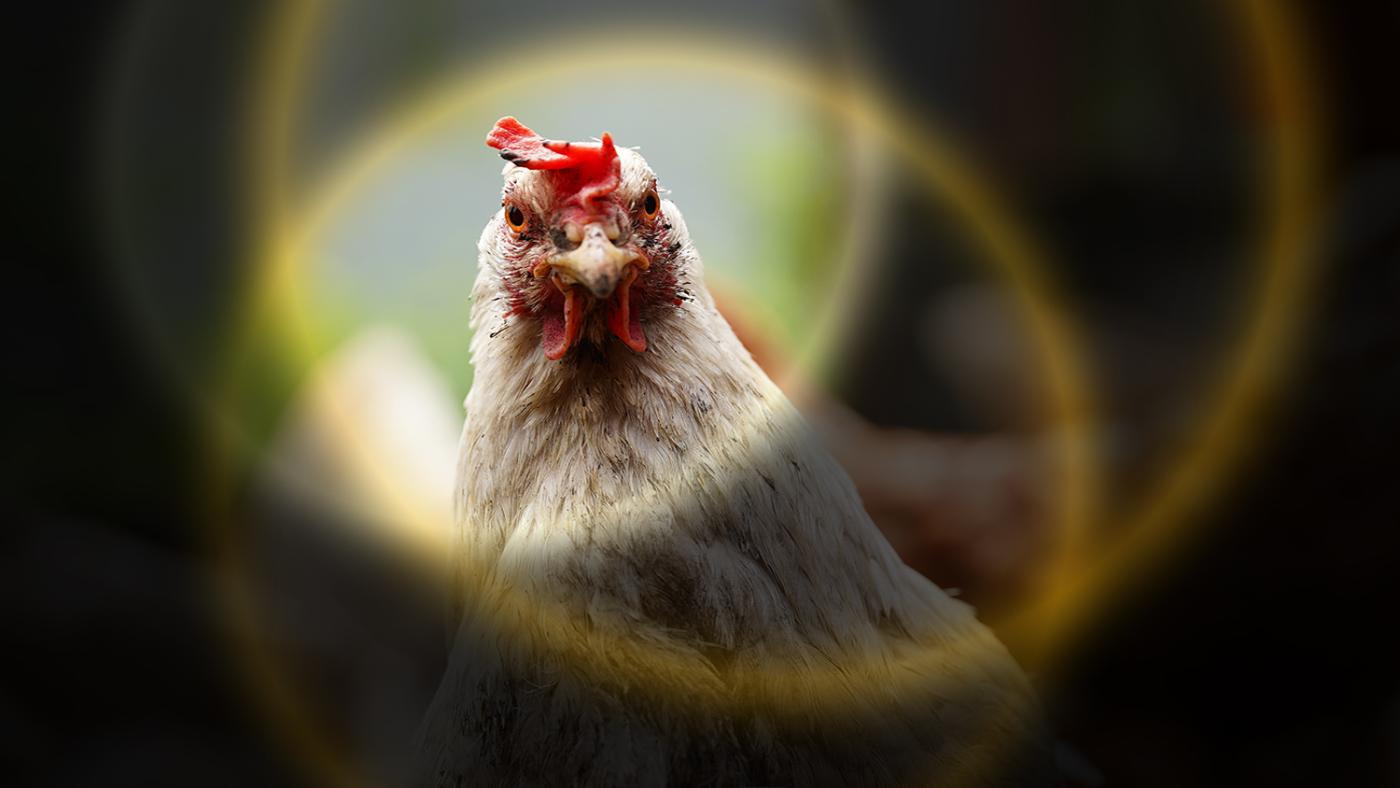Continuing chicken research at Utrecht Science Park
‘It’s a like Big Brother for chickens’

When Utrecht University applied for a permit this spring to build a giant coop at the Tolakker educational farm for a maximum of 2925 chickens, it led to questions from political party Partij voor de Dieren (Party for the Animals). The Utrecht Vegan Student Association started a petition to ensure that the permit was not issued. The association feared for the animals’ welfare and thought the permit would lead to an increase in the number of animal experiments.
Professor of Animal Welfare Bas Rodenburg, who will be researching the chickens in the new coop, has already spoken with the students and has seemingly cleared the air (see box). “Nowadays you can count on protests as soon as the welfare of animals seems to be at stake. In that respect, the reaction did not come as a complete surprise.”
Dust baths
Rodenburg, a biologist, moved from Wageningen to Utrecht University in April 2018. At the time, he had already been researching the behavior and welfare of farm animals for twenty years. “Animal welfare has become increasingly important in recent years. The Netherlands wants to work towards animal-friendly animal husbandry, and research is needed for this. For example, how many chickens can you keep in a certain room without affecting welfare? How should that space be furnished?”
Chickens in the wild spend about 60 to 70 percent of the day exploring their environment, says the professor. In addition, they like to take a dust bath, they want to be able to go to roost and eat and drink when they feel like it. Rodenburg wants to see in what kind of environment within a working egg farm the chickens can maintain their natural behavior. “If they’re stressed, they can start pecking at each other and that can escalate to cannibalism.”
A nice life in the barn has perhaps become even more important because of bird flu. “During epidemics farmers have to keep the animals indoors to prevent contamination. In those cases it’s extra important that the animals feel comfortable inside and can also show their natural behavior there.”

Bas Rodenburg. Foto: Universiteit Utrecht
Big Brother
In yet to be built coop, Rodenburg wants to observe about two hundred chickens per coop with cameras and microphones. “How do they behave? Are they having a good time or not? How often do they eat?” The sound they produce also matters. “Are they sounding the alarm, do you hear frustration or are they chatting pleasantly? It’s a kind of Big Brother for chickens,” he laughs.
The research also has a second objective. “We want to digitize research with artificial intelligence. We are going to teach a computer to recognize different behaviors and sounds so that it can eventually tally which behavior the chickens show and how often. This way, we want to make the behavior and welfare of the chickens measurable.”
Once this technology is developed, chicken farmers can use these tools to monitor whether their chickens are doing well, or whether they need to make adjustments in their care or living space to increase the chicken’s welfare. For example, the tool can measure increased activity, which can mean that something is wrong in the coop, and it can intervene in time.
The UU’s chicken coop
In principle, the coop will be a large open space, says Rodenburg. He promises that the chickens will get enough room. For example, they are not placed in an increasingly smaller space in order to evoke and measure stress behavior. “No, on the contrary. The chickens in a test set-up are given more space than in a working farm.”
The Vegan Student Association’s fears that the chicken’s will be experimented on a lot are unfounded. The research is not very “invasive,” Rodenburg says, meaning that medical equipment does not enter the chicken’s body. However, he must report the research to the animal welfare authority that determines whether something is an animal experiment. “Because it may be that we want to take blood once, in which case it will be an animal experiment.”
Students
What Rodenburg thinks is a big plus of a coop at the USP is that Master’s students of Veterinary Medicine can participate in the research more easily. “At the moment, students who want to do a research internship with chickens always have to leave the site.” Another advantage is that there is a physical place where, for example, farmers or researchers from abroad can come and visit and knowledge can be transferred. “We are already being invited to talk about how the welfare of chickens can be improved elsewhere in the world. If we have a barn here, foreign researchers and farmers can also come here and see how we work with their own eyes.”
Vegan Student Association helps UU find adoptive homes for chickens
“We are positively surprised by the way Utrecht University thinks along with us,” says Steven, of the Vegan Student Association (VSA). The VSA has conducted two interviews with the university. “We are fundamentally opposed to the use of animals for research and to the keeping of animals for human consumption, to which chicken research contributes. And although we will never agree ideologically on this premise, we have dicussed the future of the chickens when they are no longer needed for research with the university.
The university had a program that looks for adoptive homes for former laboratory animals. The UU didn't know how many animals has been adopted. In the second meeting we were told that currently 5 percent of laboratory animals are being adopted. We think that’s a good initiative that deserves to be expanded. We are now going to help raise awareness of this initiative and help find adoptive homes so that more animals can grow old in a good environment after being used for research.”
The VSA has since closed the petition against the chicken research, but has not taken it offline. “We do want people to know that this kind of research is taking place.” Incidentally, the VSA takes a more nuanced view of the use of animals for the training of veterinarians. “We understand that students need to learn how to examine animals in order to become good veterinarians. But this doesn't mean that we support research to help the bio industry."